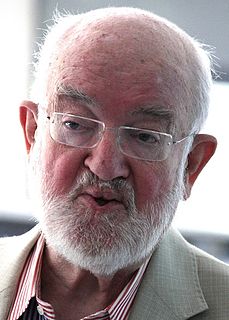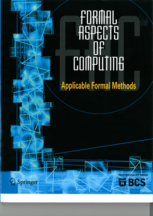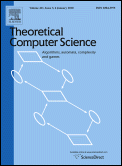In computer science, communicating sequential processes (CSP) is a formal language for describing patterns of interaction in concurrent systems. It is a member of the family of mathematical theories of concurrency known as process algebras, or process calculi, based on message passing via channels. CSP was highly influential in the design of the occam programming language, and also influenced the design of programming languages such as Limbo, RaftLib, Go, Crystal, and Clojure's core.async.
Software development is the process of conceiving, specifying, designing, programming, documenting, testing, and bug fixing involved in creating and maintaining applications, frameworks, or other software components. Software development is a process of writing and maintaining the source code, but in a broader sense, it includes all that is involved between the conception of the desired software through to the final manifestation of the software, sometimes in a planned and structured process. Therefore, software development may include research, new development, prototyping, modification, reuse, re-engineering, maintenance, or any other activities that result in software products.
The following outline is provided as an overview of and topical guide to software engineering:
Peter Pin-Shan Chen is a Taiwanese American computer scientist. He is a Distinguished Career Scientist and faculty member at Carnegie Mellon University, who is known for the development of the entity-relationship model in 1976.

A metamodel or surrogate model is a model of a model, and metamodeling is the process of generating such metamodels. Thus metamodeling or meta-modeling is the analysis, construction and development of the frames, rules, constraints, models and theories applicable and useful for modeling a predefined class of problems. As its name implies, this concept applies the notions of meta- and modeling in software engineering and systems engineering. Metamodels are of many types and have diverse applications.

Professor Dines Bjørner is a Danish computer scientist.
Duration calculus (DC) is an interval logic for real-time systems. It was originally developed by Zhou Chaochen with the help of Anders P. Ravn and C. A. R. Hoare on the European ESPRIT Basic Research Action (BRA) ProCoS project on Provably Correct Systems.

The United Nations University International Institute for Software Technology was a United Nations University Research Training Centre based in Macau, China.
Zhou Chaochen is a Chinese computer scientist.
Eric C.R. Hehner, called Rick, is a Canadian computer scientist. He was born on 16 September 1947 in Ottawa. He studied mathematics and physics at Carleton University, graduating in 1969. He gained a PhD in computer science from the University of Toronto in 1974. He then joined the faculty there, becoming a full professor in 1983. He became the Bell University Chair in Software Engineering in 2001, and retired in 2012.

Component-based software engineering (CBSE), also called components-based development (CBD), is a branch of software engineering that emphasizes the separation of concerns with respect to the wide-ranging functionality available throughout a given software system. It is a reuse-based approach to defining, implementing and composing loosely coupled independent components into systems. This practice aims to bring about an equally wide-ranging degree of benefits in both the short-term and the long-term for the software itself and for organizations that sponsor such software.
Professor James Charles Paul Woodcock FREng FBCS CEng CITP is a British computer scientist.
Unifying Theories of Programming (UTP) in computer science deals with program semantics. It shows how denotational semantics, operational semantics and algebraic semantics can be combined in a unified framework for the formal specification, design and implementation of programs and computer systems.
Prentice Hall International Series in Computer Science is a series of books on computer science published by Prentice Hall.
Enterprise engineering is defined as the body of knowledge, principles, and practices to design all or part of an enterprise. An enterprise is a complex, socio-technical system that comprises interdependent resources of people, information, and technology that must interact with each other and their environment in support of a common mission. According to Kosanke, Vernadat and Zelm, enterprise engineering is an enterprise life-cycle oriented discipline for the identification, design, and implementation of enterprises and their continuous evolution, supported by enterprise modelling. Enterprise engineering is a subdiscipline of industrial engineering / systems engineering. The discipline examines each aspect of the enterprise, including business processes, information flows, material flows, and organizational structure. Enterprise engineering may focus on the design of the enterprise as a whole, or on the design and integration of certain business components.
The International Conference on Software Engineering and Formal Methods (SEFM) is an international academic conference in the field of software engineering.

Behavior trees are a formal, graphical modelling language used primarily in systems and software engineering. Behavior trees employ a well-defined notation to unambiguously represent the hundreds or even thousands of natural language requirements that are typically used to express the stakeholder needs for a large-scale software-integrated system.
Mathai Joseph is a leading Indian computer scientist.










